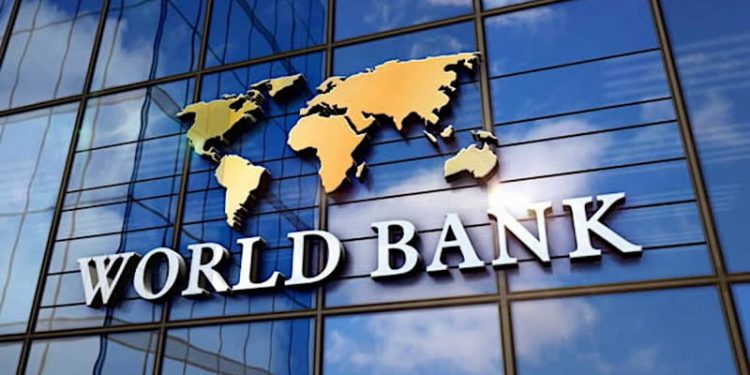The Federal Government of Nigeria is engaging the World Bank for two new loans totaling $580 million, set for approval in March 2025. The funding, aimed at improving nutrition and education initiatives, underscores Nigeria’s ongoing reliance on external borrowing despite growing concerns over its mounting debt burden.
According to information from the World Bank’s website, the two projects in the pipeline are Accelerating Nutrition Results in Nigeria 2.0 and HOPE for Quality Basic Education for All. These initiatives are expected to receive final approvals on March 27 and March 20, 2025, respectively.
The HOPE for Quality Basic Education for All program has a proposed commitment of $552.18 million, with $500 million from the World Bank and an additional $54 million from other sources. The project aims to address Nigeria’s education crisis, where over 17 million children remain out of school. It will focus on improving early childhood education, primary and junior secondary schooling, and expanding access to learning resources.
Implementation will be overseen by the Federal Ministry of Finance, in collaboration with the Federal Ministry of Education and the Universal Basic Education Commission. Currently, the project is in the “Concept Review” phase, meaning further consultations are required before finalization.
The second loan, Accelerating Nutrition Results in Nigeria 2.0, is expected to secure $80 million from the World Bank. This project aims to combat malnutrition and food insecurity, particularly among vulnerable groups such as pregnant women, lactating mothers, adolescent girls, and children under five. The initiative will be implemented through primary healthcare facilities and community-based programs, incorporating nutrition-smart agriculture to improve household food security and dietary diversity.
The first phase of this nutrition project received an initial $232 million loan approved on June 27, 2018. However, it faced multiple challenges, leading to modifications and the cancellation of some portions of the funding. The Federal Government is now negotiating an additional loan to continue the initiative, with its approval date moved from February 20, 2025, to March 20.
While these projects are expected to enhance Nigeria’s human capital development by improving education and nutrition outcomes, they come amid growing concerns over the country’s rising debt levels. Under President Bola Tinubu’s administration, Nigeria has secured $6.95 billion in loans from the World Bank in just 18 months. A total of 10 loan projects have been approved during this period.
According to the latest external debt report from Nigeria’s Debt Management Office, the World Bank’s share of Nigeria’s total debt now stands at $17.32 billion. The bulk of this, $16.84 billion, is owed to the International Development Association (IDA), which accounts for 39.14% of Nigeria’s total external debt. An additional $485.08 million is owed to the International Bank for Reconstruction and Development (IBRD), another arm of the World Bank.
The burden of debt servicing is also increasing. The Federal Government spent $3.58 billion servicing external debt in the first nine months of 2024—a 39.77% rise from the $2.56 billion spent during the same period in 2023. This growing cost is straining Nigeria’s fiscal balance, limiting funds available for critical sectors like healthcare, infrastructure, and job creation.
Nigeria’s debt situation reflects a broader global trend, with developing nations collectively spending a record $1.4 trillion on foreign debt servicing in 2023. According to the World Bank’s International Debt Report, interest payments alone reached $406 billion—a nearly 30% increase from the previous year. The report notes that countries eligible for IDA loans, including Nigeria, are among those most affected by this financial strain.
In response to concerns over excessive borrowing, the Federal Government has reiterated its commitment to reducing dependence on external debt. The Minister of Finance and Coordinating Minister of the Economy, Wale Edun, recently met with World Bank Executive Director Zainab Shamsuna Ahmed to outline Nigeria’s new approach to financing economic growth.
A statement from the ministry emphasized President Tinubu’s focus on strengthening Nigeria’s economic foundation through private-sector-led development rather than continued reliance on multilateral loans. “The administration is prioritizing a business-friendly environment to attract sustainable investments,” the statement read.
Ahmed, who previously served as Nigeria’s Minister of Finance, praised recent financial reforms within the World Bank, which have expanded its lending capacity, unlocking an additional $150 billion over the next decade. She noted that while Nigeria remains eligible for strategic funding, maintaining fiscal discipline and exploring alternative financing models will be crucial.
The pending World Bank loans highlight the difficult balance Nigeria must strike—addressing urgent development challenges while keeping debt levels sustainable. Education and nutrition are critical areas where increased investment is needed to improve human capital and long-term economic prospects. However, the growing cost of debt servicing raises questions about how much more borrowing Nigeria can afford without jeopardizing its financial stability.
With rising interest rates and increased scrutiny over the country’s borrowing strategy, Nigeria’s economic policymakers will need to ensure that funds secured from these loans are effectively deployed to yield tangible, lasting benefits. As the country moves toward a private-sector-led growth model, the success of these efforts will depend on whether Nigeria can generate sufficient domestic revenue and investment to gradually reduce its dependence on external financing.










